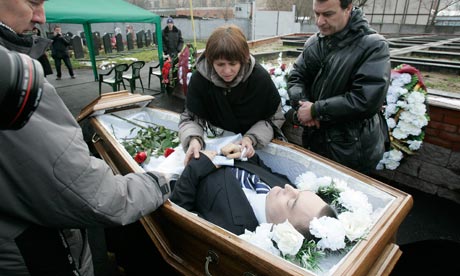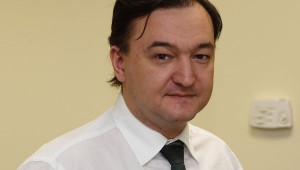By Terance Walsh
Impunity Watch Reporter, Europe
LONDON, United Kingdom – Alexander Yakovenko, the Russian ambassador to the United Kingdom, issued a statement denying reports of a posthumous prosecution of deceased Russian lawyer Sergei Magnitsky. Yakoveno’s statement contradicts documentary evidence that Russian authorities are preparing to prosecute Magnitsky.

Magnitsky was a lawyer for Russian company Hermitage Capital. In 2008 Magnitsky uncovered a tax fraud scheme coordinated by one of Hermitage Capital’s clients. Upon reporting the fraud the Russian government turned the blame on Magnitsky. He was imprisoned in depraved conditions, denied access to urgent medical care, and was allowed to die on the floor of the prison.
Several documents contradict Yakavenko’s assertion that Russian officials never planned on prosecuting Magnitsky posthumously. A letter from Major Smirnov of the Russian Interior Ministry to Magnitsky’s mother, dated 10 February 2012 read, “During preliminary investigation, no grounds in support of the rehabilitation of deceased S. Magnitsky have been established, and under these circumstances his case must go to trial on common terms.”
Another letter on 24 February 2012 from General Romanov, the Deputy Chief of the Russian Interior Ministry’s Investigative Committee, to Magnitsky’s family stated, “The reopening of the preliminary investigation into S. Magnitsky has a direct aim to determine…all circumstances of the case in support of the accusation against S. Magnitsky and decide on that basis the matter about his guilt or innocence in the incriminated acts.”
And on 6 March 2012, Boris Kibis of the Russian Interior Ministry wrote a letter to Magnitsky’s mother naming her as a defendant in Magnitsky’s prosecution. “You have been made a participant in the criminal case and now have the rights of a defendant.”
In his statement, Yakovenko gives an explanation for the continued proceedings involving Magnitsky and denies intentions to convict him.
In accordance with general rules of the Russian penal legislation, a criminal investigation is discontinued in case of death of the accused person.
However, the Constitutional Court of the Russian Federation has recently decided that such a criminal investigation may be resumed or continued in case the person’s relatives insist on his posthumous rehabilitation. According to the information available, this is precisely what the mother of Sergey Magnitsky and his advocates insist on.
In this connection, the court is the only authority to decide on rehabilitation of Sergey Magnitsky or discontinuation of this criminal case “on account of the death of the defendant”. Russian law does not envisage conviction of a deceased person.
Thus, allegations of a posthumous prosecution of Sergey Magnitsky spread by the Hermitage Capital investment fund and some international organizations have no legal grounds.
Yakovenko’s statement follows a long debate in the British Parliament earlier this month, which concluded with a recommendation to impose sanctions against Russian officials for their role in Magnitsky’s death.
Througout the debate in Parliament, members of the British Parliament accused Yakovenko of attempting to gag discussions of sanctions. These accusations stem from Yakavenko’s letter to British MP Dominic Raab complaining of “errors” in Raab’s motion for sanctions against Russian officials.
Raab responded to the letter by saying, “It’s bad enough Mr Putin’s regime corrupting elections in Russia. But it adds insult to injury for him to send envoys to try to subvert democracy in this country.”
Since the proceedings against Magnitsky began last July his family has sent over twenty complains to Moscow courts against the Russian Interior Ministry and General Prosecutor. All of the complaints have been denied.
For more information please see:
Law and Order in Russia — Russia’s UK Ambassador Joins Cover Up In Magnitsky Case — 18 March 2012
The Embassy of the Russian Federation to the United Kingdom of Great Britain and Northern Ireland — On The Magnitsky Case — 16 March 2012
RIANOVOSTI — British MPs Urge Magnitsky List Sanctions — 8 March 2012
The Telegraph — Russia ‘Tries To Gag British Parliament’ — 7 March 2012
